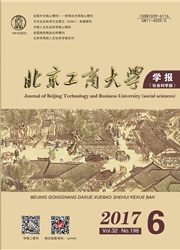

 中文摘要:
中文摘要:
中国机构投资者在过去十几年规模和数量都取得了快速发展,但其在资本市场中扮演什么样的角色一直没有定论。通过考察2006—2014年机构投资者持股和交易行为,研究发现我国股票市场整体股价同步性偏高,机构投资者持股比例高的股票股价同步性更低,而机构投资者交易的增加却未能降低股价同步性。机构持股和机构交易对股价同步性的影响机制和对不同规模的股票影响不尽相同,通过进一步考察不同类型机构投资者行为对股价同步性的影响,发现各类型机构投资者影响存在差异,其中信托、养老基金和QFII的持股和交易行为都会降低股价同步性,有利于市场信息效率的提高。为了维护资本市场稳定和提高市场效率,应在继续大力发展机构投资者的同时改善机构投资者结构并优化基金经理业绩考核体系。
 英文摘要:
英文摘要:
China's institutional investors have achieved a rapid development in both the scale and the quantity over the past dacade. However, what role the institutional investors can play in the capital market has not yet been clarified. By examining the shareholding and trading behaviours of China's institutional investors during the years from 2006 to 2014, this paper finds that the stock price synchronicity is generally high on China's stock market, the stocks with a relatively high percentage of institutional investors'shareholding are lower in stock price synchronicity, but the increase of institutional investors' trading fails to reduce the stock price synchronicity. The institutional investors'shareholding and trading are different in mechanism to impact the stock price synchronicity, and have different impacts upon the stocks at different scales. By further examining the impact that different institutional investors Jbehaviours have on stock price synchronicity, it finds that different institutional investors have differences in their impact. The shareholding and trading behaviours in insurance, trust, pension fund and QFII will reduce the stock price synchronicity, which is good to improve the market informational efficiency. In order to maintain the stability of capital market and enhance the market efficiency, we should encourage the development of institutional investors, and improve the structure of institutional investors and optimize the performance evaluation system of mutual fund managers.
 同期刊论文项目
同期刊论文项目
 同项目期刊论文
同项目期刊论文
 期刊信息
期刊信息
